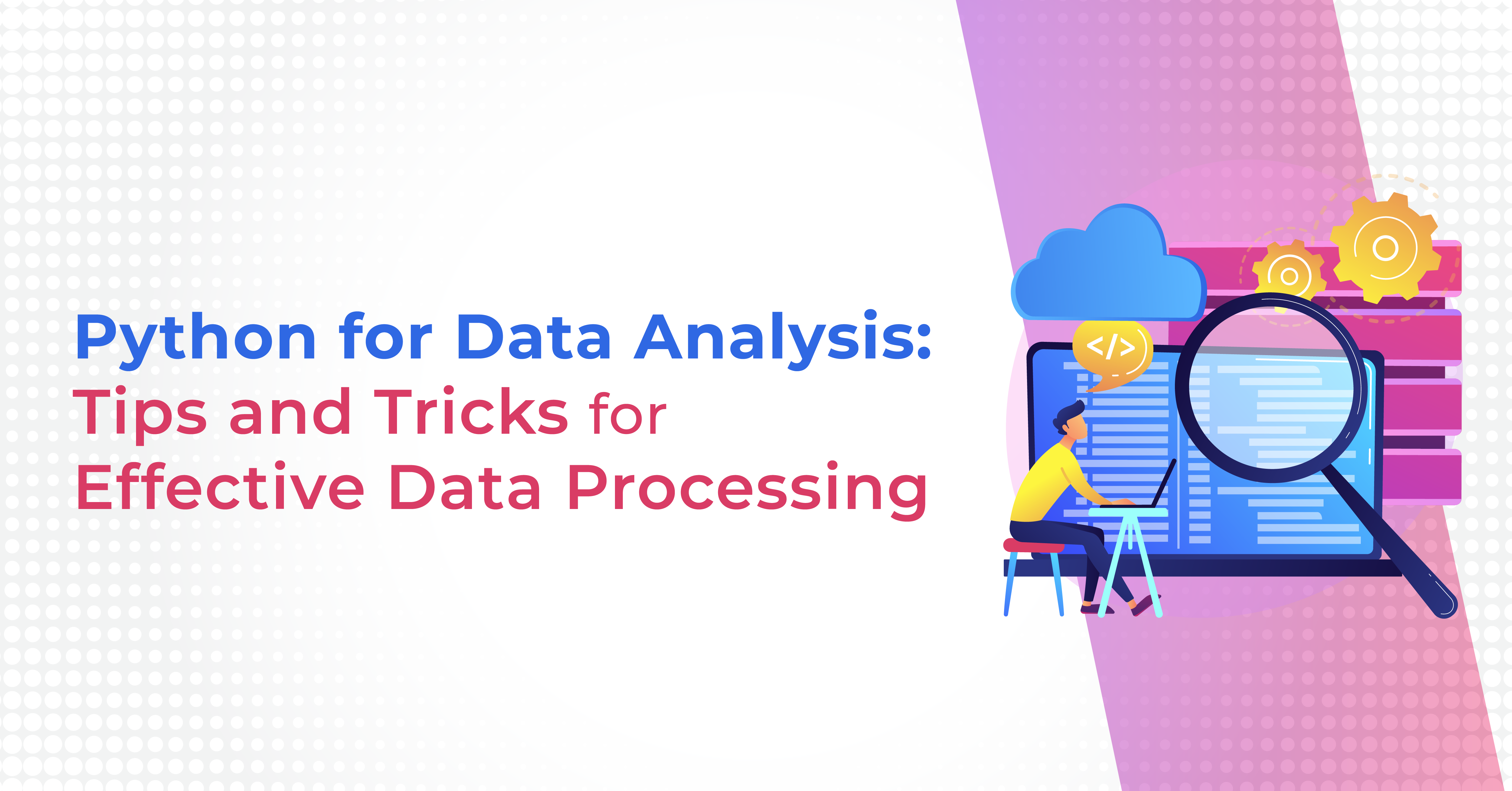Python for Data Analysis: Tips and Tricks for Effective Data Processing
In today’s data-driven world, data analysis has become a critical skill for professionals in various fields. Python is one of the most popular programming languages used for data analysis, thanks to its simplicity, flexibility, and vast array of libraries and tools specifically designed for data processing. In this blog post, we’ll explore some tips and tricks for using Python effectively for data analysis.
- Understanding Your Data: Before you can begin processing your data, you need to understand its structure and the type of analysis you want to perform. This requires familiarity with statistical concepts such as regression, correlation, and variance. Python has several libraries, such as NumPy and Pandas, that can help you perform statistical calculations and explore your data’s properties. These libraries are also useful for manipulating data, removing duplicates, filling in missing values, and dealing with outliers.
- Selecting the Right Libraries: Python has a wealth of libraries that can help with data processing and analysis. When selecting a library, it’s essential to consider the scope and functionality of the library and the specific requirements of your project. For example, Matplotlib and Seaborn are powerful data visualization libraries that can help you create charts and graphs that communicate your data effectively. Similarly, Scikit-learn is a popular library for machine learning, while TensorFlow is an open-source machine learning platform used for deep learning.
- Structuring Your Code: Well-structured code is critical for efficient data processing and analysis. A structured codebase ensures that your code is easy to read, maintain and scale, and less prone to errors. One popular Python coding standard is PEP 8, which provides guidelines for code layout, naming conventions, and commenting. Additionally, organizing your code into functions and classes can help simplify complex tasks and enable code reuse.
- Real-World Projects: To get a sense of how to apply your Python data analysis skills, it’s useful to study real-world projects. One such example is sentiment analysis, which involves analyzing customer feedback to determine the overall sentiment of the feedback. Another example is recommendation systems, which involve analyzing user behaviour and preferences to provide personalized recommendations. Studying real-world projects can help you understand the skills and techniques required for data analysis and how to apply them in practice.
In conclusion, Python is an excellent choice for data analysis and processing, thanks to its rich ecosystem of libraries, tools, and resources. By following the tips and tricks outlined above, you can develop your Python data analysis skills and apply them to real-world projects. If you’re interested in mastering Python for data analysis, consider enrolling in a Python training course like the one offered by IPSR Solutions Limited. Our Python Training Institute provides hands-on training in Python programming, data analysis, and machine learning, ensuring that you have the skills and knowledge needed to succeed in this exciting field.









